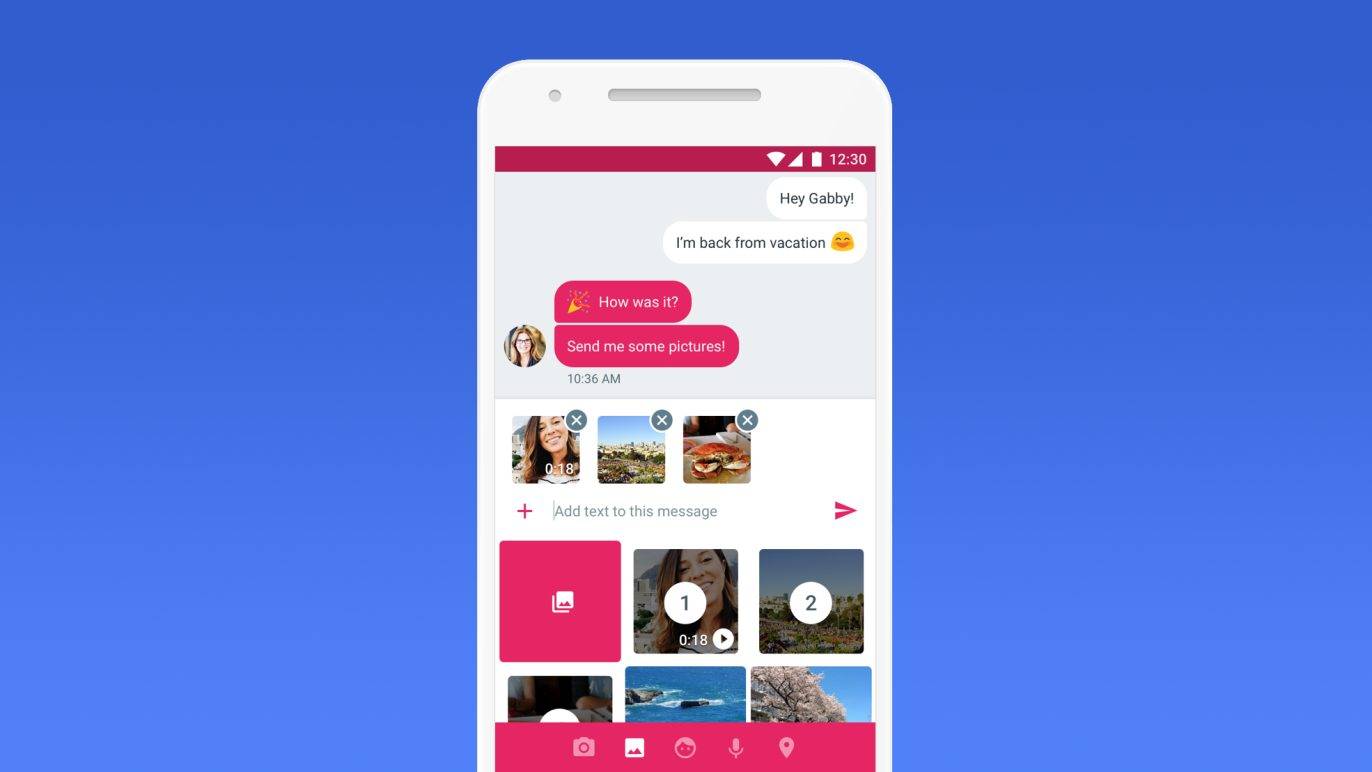Google’s Getting Closer to Releasing Android’s iMessage Equivalent

If there are things that iPhone users never let us forget is that they have Airpods and iMessage and as much as one can actually use Airpods on and Android device with limited functionality, the same cannot be said about iMessage.
Yes, there are other popular messaging platforms like WhatsApp but that is a third-party application when it comes to native apps, Android is still stuck with traditional SMS.
Well, Google has been working on a new way to deliver messages on Android devices using RCS – Rich Communication Services since 2018.
RCS is a texting protocol that was developed by GSM Association to replace SMS back in 2008. Like iMessage and other messaging platforms, RCS uses a data connection as opposed to a cellular connection, it also offers a better messaging experience with support for multimedia such as videos, audio and even high-quality images.
Google has been pushing telcos to offer support for RCS, which would mean the beginning to the end of SMS as we know it but that journey has been taking longer than expected. It has now been reported that Google is taking the implementation of RCS into its own hands – the service will be offered through Google’s servers, thus cutting off the need for telco support.
First, instead of using the term RCS, Google is branding the service as Chat. The company is then working on providing the service itself instead of relying on telcos to do so, this means that within a short time, all Android devices will have support for Chat, whether telcos like it or not.
As of now, Google is launching the service in France and the UK with other countries getting a similar treatment eventually.
We’re not sure of how such a service will be received in emerging markets like Kenya, where WhatsApp is the dominant messaging platform and seeing that Chat is offering similar features, the success of such a service may be dimming before it shines but that should not stop Google from rolling it out.
How It Works
Chat will be available as an opt-in feature on the default Android Messages app as well as Samsung’s Messages app. Despite this list looking unhealthy, a number of smartphone makers have committed to offering support for chat, such as Huawei, Samsung, LG, HTC, Lava, ZTE and Lenovo.
The user experience will just be the standard messaging experience, only that now a data connection will be required, failure to which, the message will be sent as a normal SMS (similar to what iMessage does). Users will be able to create group chats on top of sending multimedia attachments, it will also be possible to see when someone is typing and there will be the famous blue ticks (read receipts) available.
The only issue so far is with data security. Chat supports client-to-server encryption, which means that as your message is being transmitted, it will be encrypted but there’s no end-to-end encryption like we have with third-party messaging services.
However, Google says they are working on this and as of now, the company claims they will not store any messages on their servers once it has been delivered.
There are no timelines as to when we should expect to see Chat rollout to everyone but chances are by the end of this year, a majority of users will have access to Chat.
Find more such stories on gadgets and technology at Gadgets-Africa.com